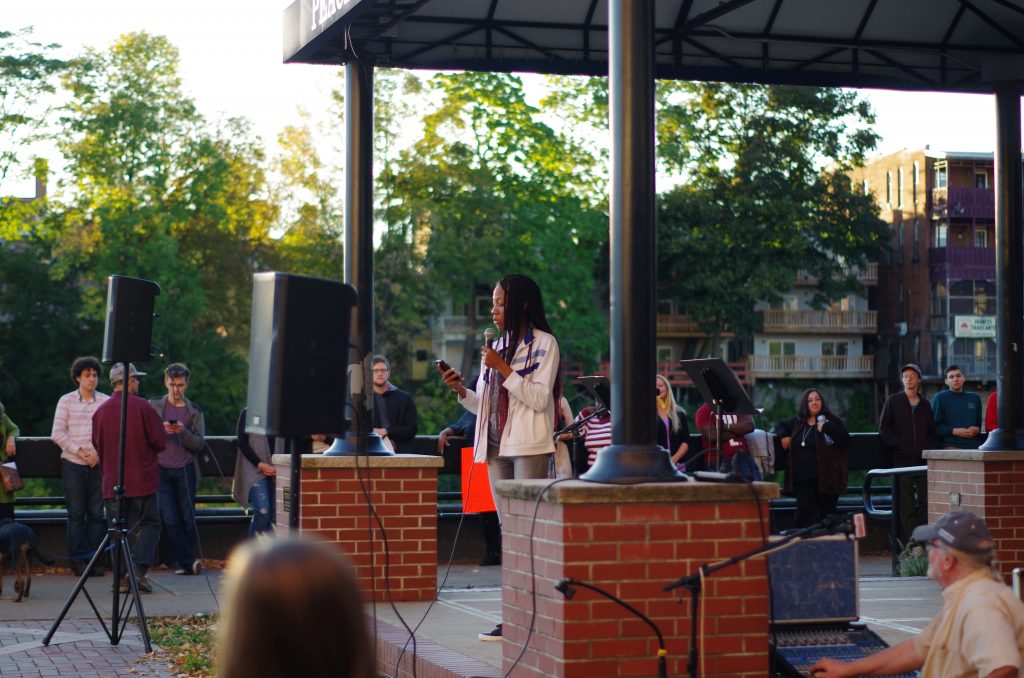
“We who believe in freedom cannot rest until it comes; until the kill of black men of black men, black mothers’ sons is as important as the killing of white men, white mothers’ sons.”
The lyrics of “Ella’s Song” floated from the Peacemaker’s Stage in Downtown Binghamton on Sunday, surrounding community members and students in attendance at the March for Racial Justice Vigil. The event was meant to be a sister event to a larger national movement held in Washington, D.C., on Sept. 30 and to facilitate a conversation about racial injustice.
According to Shanel Boyce, a board member for Citizen Action and a second-year graduate student studying social work, racism that has recently risen to the surface has always existed.
Boyce, who helped organize the vigil, said it was not inspired by any one specific issue, but by racist actions all across the country.
“It’s against police brutality, mass incarceration, segregation in schools,” Boyce said. “We’re highlighting all those marginalized communities at once and we’re asking people to come together to find solutions. Even though this is a smaller city, we still have things along racial divides.”
Community members and activists shared original poems and essays about the oppression they have faced because of institutional racism.
Tarik Abdelazim, the democratic mayoral candidate for the city of Binghamton, attended the event and said the issue of racism is pertinent within the city of Binghamton.
“There are neighborhoods that are doing very well, and there are neighborhoods that are not,” Abdelazim said. “We have problems with the criminal justice system right here. In every community, racism manifests itself in a myriad of ways, and right here in Binghamton we see it the same.”
The event also featured tabling by organizations like the YWCA of Binghamton and community members. Binghamton resident Shams Harper, ‘16, set up a table with pamphlets and zines on different kinds of minority-based issues, such as white privilege and feminism.
Kymel Yard, ‘12, one of the organizers of the event and the vice president of the NAACP Broome Tioga Chapter, said multiple forms of oppression need to be addressed.
“Not only just racial justice, but most forms of justice and oppression need to be addressed, especially for those who don’t get to speak,” Yard said. “I am afforded vast amounts of privilege as a black man, but I still suffer as a black person, but that doesn’t mean my struggle is the same as black women, black queer lives or even black youth.”
Yard also spoke about how tired he is as a member of an oppressed minority that is constantly expected to remain silent.
“You cannot expect us to smile and dance anymore; our feet are tired and our cheeks hurt,” Yard said. “It is time to be controversial and it is time to be fearless.”
The event ended with members of Citizen Action and the YWCA passing out and lighting candles to represent solidarity.
While the candles were being lit, Boyce emphasized the importance of continuing the conversation.
“Marches are important,” she said. “They disrupt the normal, but sometimes we go to a march and think we did our good deed for the month and it just stops there. You guys need to go home and think about how you can make change in your own little corners of the world.”


